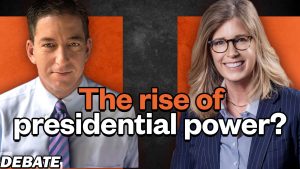Is a Slur Merely an Insult or a Contextual Implication of Incompetence?
In the recent case of Fagan v. Faulkner, the Mississippi Supreme Court addressed a conflict between Judy Faulkner and Dr. Bryan Fagan stemming from their professional relationship at North Mississippi Surgery Center. Over the span of fourteen years, Fagan, who has a personal stake in the center, performed orthopedic surgeries there since 2010, while Faulkner has served as a clinical manager for about twenty years. On February 16, 2016, an operational decision led to a heated exchange when Fagan sought to swap two surgeries scheduled for that day, primarily due to the logistical challenges of using specialized equipment called the "Spider." When Faulkner explained that the equipment was not available, the situation escalated into a confrontation, culminating in Fagan using profanity in the operating room while expressing discontent with Faulkner’s management of the surgery schedule.
The Mississippi Supreme Court’s opinion, authored by Justice Josiah Coleman, looked into whether Fagan’s outburst constituted defamation against Faulkner. Faulkner claimed that Fagan’s comments were damaging and met the legal standard for slander per se, but the Court disagreed. It concluded that the language used by Fagan—including calling Faulkner a "f***g ct"—was not sufficient to impute a failure of professional capacity or integrity on her part as required for a slander per se claim. The Court emphasized that mere name-calling does not meet the legal threshold for defamation in Mississippi, and that Faulkner failed to present adequate evidence that any of Fagan’s statements were understood as defamatory by those present in the operating room.
Further analysis by the Court revealed that while Fagan’s comments displayed a strong dislike for Faulkner, they did not explicitly question her competence or ability to perform her job. Unsubstantiated allegations of inadequacy need to be tied directly to a person’s professional qualifications to qualify as defamation. The evidence presented indicated that Fagan may have voiced complaints about Faulkner’s performance on that particular day, but the record did not contain assertions suggesting she was unqualified in her role overall. The Court noted that Fagan’s use of vulgar language, albeit offensive, did not rise to the level of defamation as it did not convey a clear message related directly to Faulkner’s professional abilities.
Conversely, the dissenting Justices argued that Fagan’s statement could indeed be interpreted as questioning Faulkner’s competency to perform her duties, thus satisfying the requirements for slander per se. They highlighted Fagan’s admissions during the trial where he acknowledged dissatisfaction with Faulkner’s job performance that day, arguing that those admissions implied he conveyed a false narrative regarding her capabilities in front of staff, potentially harming her professional reputation. This dissent suggested that the vulgarity, while distasteful, was simply an aspect of a larger communication that implied a damaging untruth about Faulkner’s professional skills.
The dissent further noted that all parties present during the incident heard Fagan’s disparaging remarks, which included more than just expletives; they were considered in conjunction with his claims of dissatisfaction about Faulkner’s performance. Given these circumstances, the dissent contended that Faulkner had indeed met the necessary legal standards to consider Fagan’s statements defamatory. Therefore, the dissenting Justices called for upholding the trial court’s verdict, stressing that every professional deserves protection from false statements that impair their career integrity and reputation.
Ultimately, the case underscores important considerations in defamation law, particularly regarding standards for proving slander, the interpretation of language used in professional settings, and the burden of proof required to substantiate claims of defamation. The majority opinion reinforced that not all offensive or vulgar language in a professional context constitutes actionable defamation, which poses significant implications for interpersonal disputes in similar scenarios. The dissenting opinion, however, opened the door for consideration that even involuntary and emotionally charged outbursts at work can carry weight regarding the assessments of professional competence if they lead to real reputational harm. The outcome of Fagan v. Faulkner serves as a reminder of the delicate balance between free expression in the workplace and the protections afforded to individuals against disparaging comments that untruthfully reflect on their professional capacities.
Share this content:








Post Comment